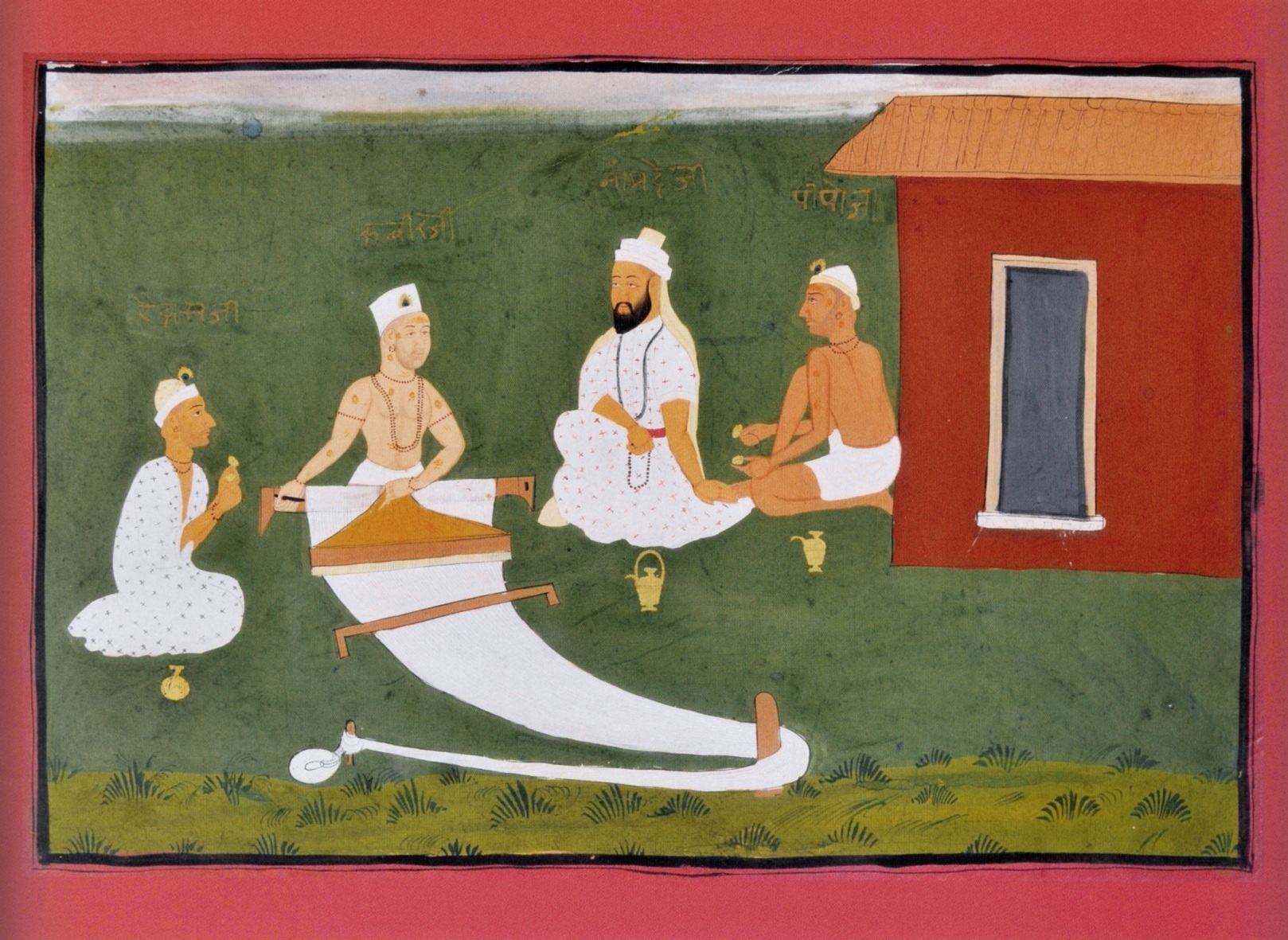Over five centuries after he confronted the most powerful pillars of establishment with truth and courage, Sant Kabir reigns in the hearts of millions as an compromising social reformer and people’s poet with perhaps the widest reach in India. He is still arguably the most commonly quoted poet in the vast Hindi belt, with a following that extends much beyond it.
The weaver poet with all his fierce messages against the powerful establishment has managed to establish such wide popularity that even those powerful forces whom he opposed very openly find it difficult to speak openly against him, while those who believe in him find it easier to spend such anti-establishment messages by quoting him rather than speaking directly.
In those times and more particularly in India, the tendency to mix myth, miracle , legend with reality was such that there are some difficulties in studying Sant Kabir and his poetry. Add to this the fact that Kabir and his friends went by the oral tradition and the first efforts to write down his verse were probably made around a hundred years after he left us.
By that time some of his precious verse must have been lost while much else was added by followers and others not necessarily understanding him properly but keen to join the popularity wave by inserting some of their own writings in his collection. This increases difficulties of the careful researcher.
Rabindranath Tagore who spent a lot of his time translating about 100 poems of Kabir later had to live with critics who questioned that several of these poems were not of Kabir really!
So we must go to the essence of the great poet and thinker and not be distracted by critics who pick on a few quotes attributed to him for criticism. In fact these few scattered quotes go against the essence of his personality and message, and in all likelihood were never spoken by him, or were twisted out of context.
So let us concentrate on the essence of Kabir.
- First and foremost aspect of the life of Kabir was that he was a relentless seeker of truth. He clearly saw false values pervading all around him in society among people of different faiths, promoted by the more powerful people, and he exposed and criticized these all the time. But this for him was not adequate. If all this was false, then what is the truth, where is the truth?
- All his life Kabir was a deep and free thinker, thinking about basic aspects of the world around him in a very free way. Nothing was too well-entrenched and too holy to be taken for granted. This came naturally to him, but what is important is that he cherished and protected this very important aspect of his personality all his life in the middle of many problems of daily life.
- Kabir was one of the most courageous persons of all times. When all his thinking led to understanding of deeper truths which would be very unpalatable to very powerful sections of society, he never hesitated to speak out, despite being warned time and again regarding this.
- However a very important aspect of his endless, great courage was that it was never used for violence against others but always for peace and for peaceful resistance against injustice and social ills.
- Kabir recognized the reality that his courage in opposing powerful forces would result in his persecution and was willing to face it. Time and again he faced this with quiet determination. However when near and dear ones were harmed he was more distressed.
- This persecution and disaster instead of distracting him took him towards even deeper realization of truth, as in pain and distress he had to engage in even deeper search for solace and support within him.
- He was capable of very original thinking with an exceptional talent for going to the heart of the matter while ignoring the frivolous or less important aspects. He was able to rise above all narrow and often frivolous debates of his times, based on sects and religions, and focus on the most basic issues.
- He was a working class reformer and poet. He continued to earn his living from working as a weaver. Most of his colleagues, friends and followers, also from working and artisan class, continued to do so.
- Poetry came naturally to Kabir and he said his verse in the spoken dialect of his people, never introducing any artificiality in his language and style. Often his verse was in harmony with the tune of the loom on which he was weaving cloth. One of the reasons why it could become so popular and was remembered easily by people was that it came so easily to lips for singing and humming. What is great about Kabir is that he preserved and strengthened the conditions in which his natural talents could flower and put to best possible use. It was only by his lifelong free and courageous thinking that this exceptional talent could flourish and could be used in ways that it is still so useful for society over five centuries later.
Now let us look at the essential message of Kabir.
- The most essential task in human life is to devote oneself to the welfare of others.
- One should be compassionate to all forms of life. Eating meat is best avoided.
- Life should be simple and based on few needs. This saves us for pursuing the higher purpose of life of serving those who need us more. Excessive pursuit of consumption and luxuries takes us away from the real purpose of life. Intoxicants ( liquor, opium etc. ) should be entirely avoided. The egoistic tendencies of a person are harmful and should be curbed.
- We should never be afraid to speak and act against injustice and wrong-doing.
- As there is so much injustice and so many false values, and as powerful persons benefit from this and perpetuate this system, this courage is often needed to check injustice and protect the weak.
- A righteous life is the real need. Rituals are not necessary at all and are often harmful or silly distractions on which time and effort should not be wasted. Rituals stand in the way of realization of real spirituality.
- The goodness of God is present in all living beings and so one should serve God not by empty rituals but by reducing the distress of all living beings, particularly those who need our help.
- To get the strength and courage of living the right life, one should seek to realize the God within us, the God in our hearts, the truth in our hearts, and this is where we get support and solace for our right living, no matter how many difficulties there may be in such a path.
- It is not at all necessary to renounce family or working life for this, one can realize this righteousness of life and closeness to God while continuing one’s livelihood and family life, as long as care is taken to avoid various distractions and wrong-doings.
- 10.While God within us is most precious, it is a blessing also to get a good teacher who helps in the realization of God and truth within us.
These are the essential and durable messages of Sant Kabir, as reflected in his life as in his poetry. His poetry is one of the greatest examples of stating the essential truths of life in down to earth ways. He raised questions regarding false values in such ways, and by using very obvious symbols, that even his opponents and enemies were left speechless and could only respond in anger rather than give a rational reply. He was a great communicator who used verse that could be sung easily and naturally.
Bharat Dogra is a journalist and author. His novellas and short stories including A Day in 2071, When Mahatma Gandhi Returned to Earth and Fear have been published earlier in Countercurrents.org and elsewhere














